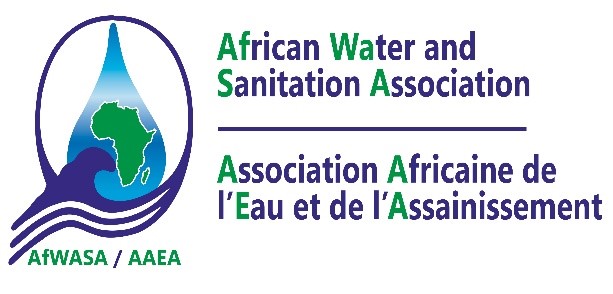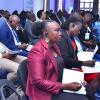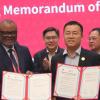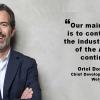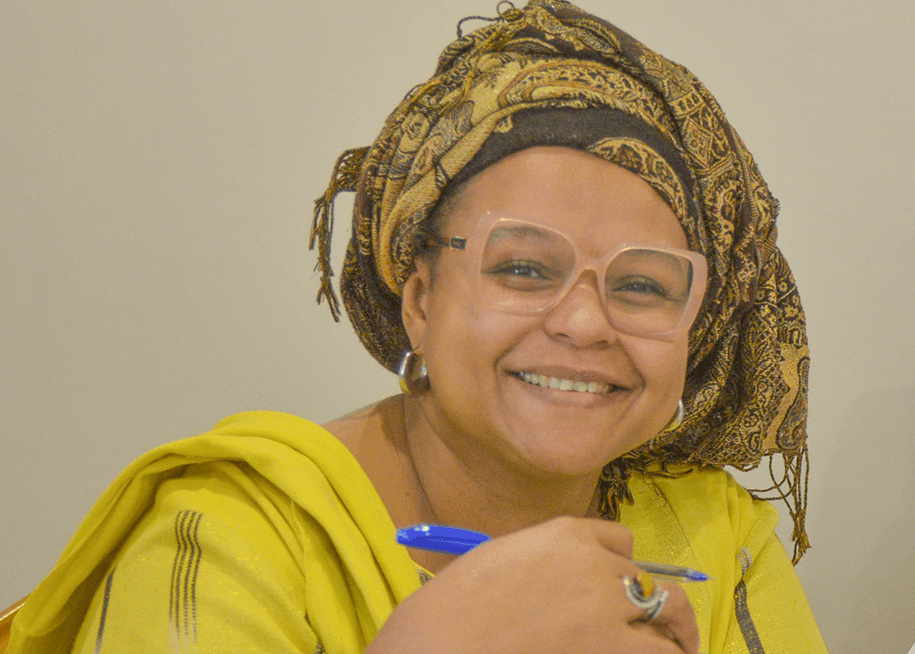
Academic and professional career
Fatim graduated from the University of Evry Val d'Essonne in France in 2009 with a Master's degree in International Cooperation and Solidarity. She began her professional career in Mali in 2008, working for various private companies and NGOs before joining the Société Malienne du Patrimoine de l'Eau Potable (SOMAPEP-SA) in 2011 as Special Assistant to the CEO with executive rank.
Thanks to her self-sacrifice, hard work and great capacity to learn, in February 2020 she was promoted to Quality, Safety and Environment Manager and given responsibility for implementing the company's procedures. She succeeded in her mission so brilliantly that a year later she took over the Environmental Safeguards Department with the mission of monitoring the compliance of environmental and social safeguards measures for SOMAPEP-SA's drinking water supply projects, in accordance with donor standards.
Commitment
I am the French-speaking rapporteur for the ‘Technical Management of Drinking Water Operations’ specialist group on the AAEA's Scientific and Technical Council. The AAEA is like a training centre that turns novices into experts. You learn in a very practical way, without paying a penny. So my participation in the activities enabled me to learn from the experts in the sector, to strengthen my knowledge in the field of water, to understand the challenges and issues in the sector and, above all, gave me ideas for projects that have subsequently borne fruit. The AAEA helped propel me to the forefront of the international scene and strengthened my commitment to local activities. I am a founding member of the Réseau Malien des Femmes Professionnelles de l'Eau et de l'Assainissement (REMAFPEA), and of the Association des Jeunes Professionnels de l'Eau et de l'Assainissement du Mali (AJPEA MALI), of which I have been president since 2021,’ says Fatim Hélène.
Major achievements
The achievements that stand out for me are mainly at AJPEA-Mali, where the team has secured two grants, one for 70,000 euros from a Dutch partner, to implement the SUFESEA project. Under this project, we are building the capacity of 20 professional women and 20 female students, organising training sessions on leadership, communication, personal development and job preparation. We also organised awareness-raising sessions for 400 students on gender and Integrated Water Resources Management (IWRM), as well as mentoring sessions between professional women and students.
Our 2nd grant was for 69,000 Euros to implement the YOUNG WASH CONNECT PROJECT, which included capacity-building for young people in leadership, green entrepreneurship, unbilled water, GIS mapping, digital communication, rural WASH and advocacy. Under this project, 17 young people benefited from a mentoring programme and were put in touch with professionals. The project enabled us to acquire a website for the Association. It has been labelled by the World Water Council for the 9th World Water Forum, to be held in Dakar, Senegal in 2022.
Challenges
Our major challenge is the employability of young people. Our young graduates struggle to find even a traineeship to acquire skills, let alone a job that requires professional experience. To alleviate this problem, we are focusing on mentoring. We are forging links with different organisations and managers so that they can offer work placements to our members. Through our online platform, we share information on job opportunities, grants and calls for projects. We encourage young people to go into entrepreneurship, because the sector is booming and I think there's market share to be won.
Proud
Fatim est fière de contribuer en tant que volontaire, à faire entendre la voix des jeunes et des communautés vulnérables. « Je suis citée comme personnalité ressource. Les jeunes me considèrent comme une source d’inspiration et veulent définir comme moi. Grâce à mon travail acharné, j’ai su gagner la confiance des services publiques, des Partenaires Techniques et Financiers, des ONGS et organisations du secteur ; ce qui m’a donné des opportunités inespérées de participer à des foras de haut niveau tels que la COP26 de Glasgow en Ecosse, en 2021, la Conférence des Nations Unies sur l’Eau de New York, aux USA en 2023, et la COP 28 de Dubaï en 2023 ».
Par ailleurs en 2021, l’ONG INTERNATIONALE IRC WASH MALI m’a décerné le titre de « Ambassadrice ayant contribué par ses performances remarquables et sa participation exceptionnelle, au développement du secteur WASH. Toutes ces merveilleuses expériences vont me permettre de travailler sur mes initiatives personnelles en faveur du développement de mon pays entant qu’Ambassadrice pour l’eau et l’environnement ». Conclut-elle.
THEME:The impact of climate change on access to water.
Access to drinking water is the most fundamental human need for health and well-being. According to an MDG 2022 report, around two billion people in the world do not have access to drinking water.
However, by 2030, climate change is likely to compromise its availability, with adverse consequences for human needs:
Voici quelques conséquences soulevées :
- Water shortages, which can be a source of inter-state conflict threatening the stability of neighbouring countries.
- An increase in extreme weather phenomena, such as rising sea levels, which could cause flooding, melting glaciers, drought, more storms and heavy rain. A World Bank study has shown that water-related disasters have dominated the list of disasters over the last 50 years, accounting for 70% of all deaths linked to natural disasters.
- Disruption of aquatic ecosystems and natural hydrological cycles, compromising sources of drinking water.
